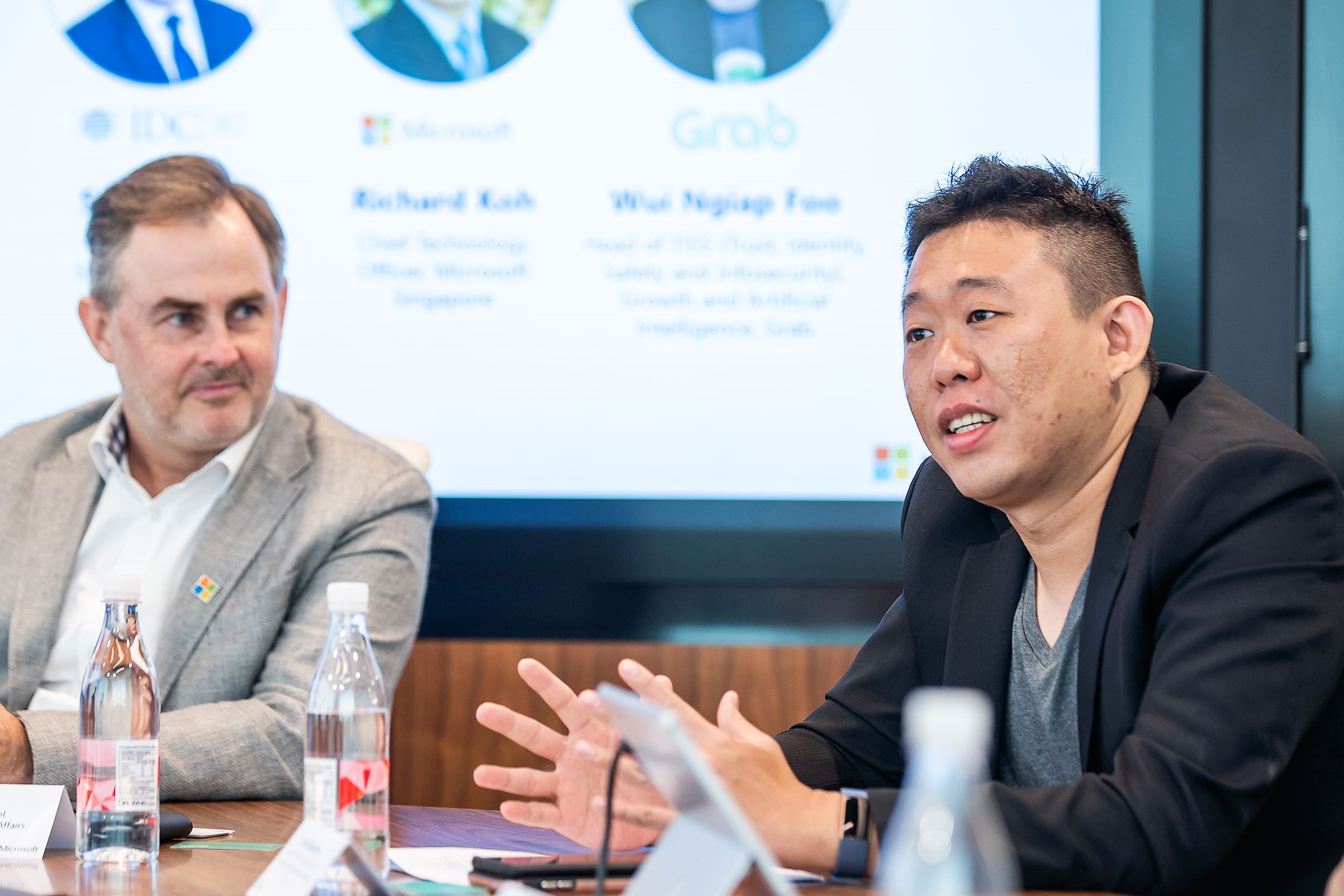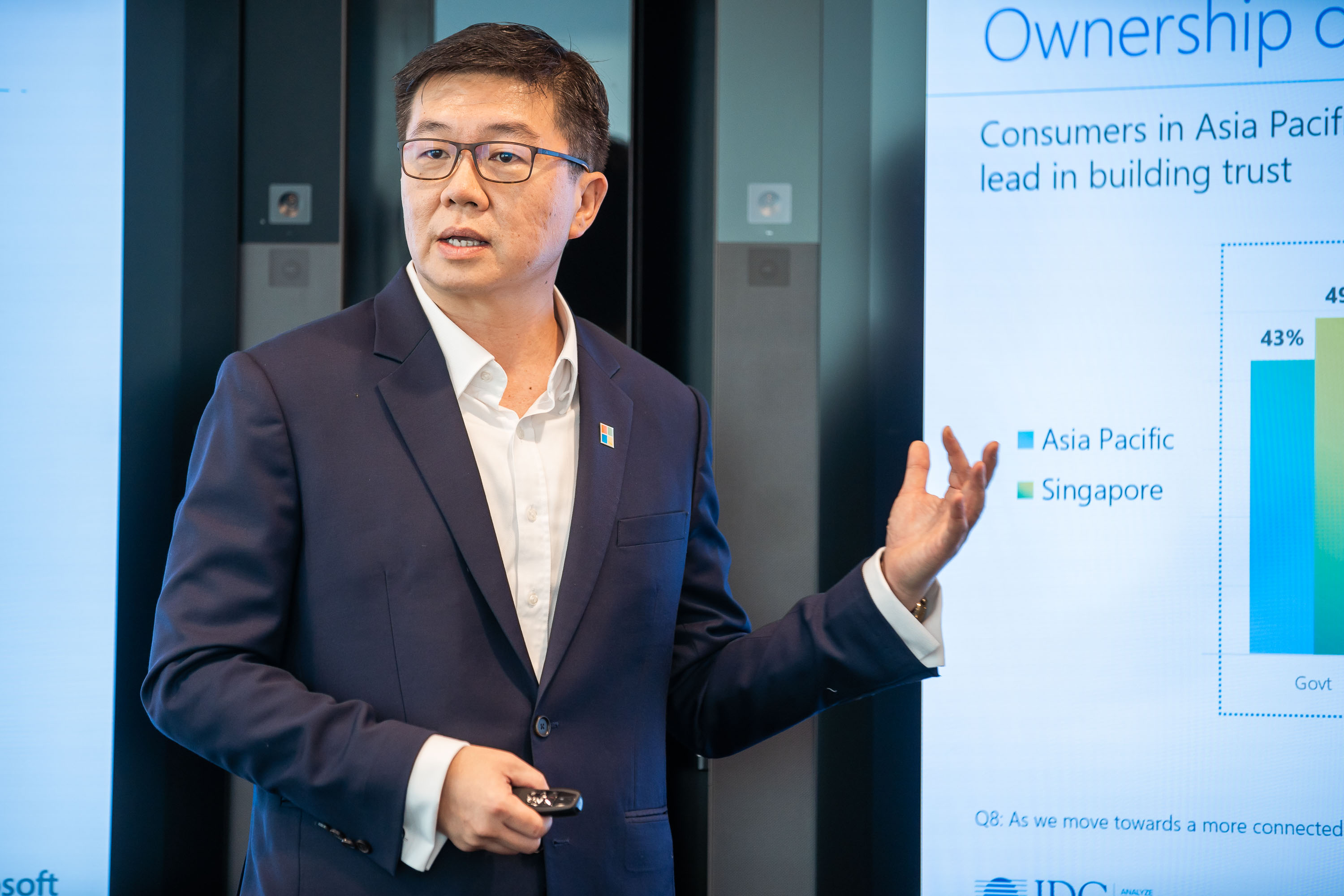
Trust and growth: Finding balance for business in our digital age
The challenges and opportunities of digital transformation
Your company has big goals and is determined to grow its immediate bottom line fast with new technologies. But you also know that building and keeping the trust of your customers and stakeholders is critical to long-term success. So, how can you have it all?
Wui Ngiap Foo – Head of TISS (Trust, Identity, Safety, and Security) and Growth at Grab – has a one-word answer: “balance.”
In little over six years, Grab has grown from a startup to a dominant force in personal transportation, deliveries, payments, and other services across Southeast Asia, using digital technologies and data to provide highly personalized services in competitive markets.
“There is a lot of pressure when you are growing a very fast pace,” says Wui. “We like to take a step back and say: ‘Are we doing the right thing for our customers and stakeholders?’ So, balance is key. Even though we have aggressive growth goals, there are certain things we would not compromise on.”
Balance was a central theme when four experts sat down at Microsoft’s Asia headquarters in Singapore recently to discuss new research on trust in business in our digital age.
The Microsoft-IDC study – Understanding Consumer Trust in Digital Services in Asia Pacific – finds that only 31% of consumers across our rapidly transforming region believe organizations offering digital services will treat their personal data in trustworthy ways.

Simon Piff, Vice President of Security Practice at IDC Asia Pacific, says companies must become more open in their interactions with consumers. “Bad news is bad news, and this finding is a call for more transparency,” he says, adding that all organizations should be asking themselves: “Are we telling consumers what we are doing, where we are investing, and how we are trying to secure and manage their data?”
Moving ahead with a mindset based on trust and transparency is essential, even when things go wrong and mistake are made, he says. “It is impossible to be 100% secure 100% of the time,” Piff says. “But how you respond is going to impact how other organizations and individuals feel about you.”
The study also suggests that trust is essential to business growth and success even when it comes to the matter of price. Sixty-one percent of consumers surveyed for the research say they would recommend a “trusted” digital service to others, even if the cost of that service is higher. Moreover, only 5% of consumers say they would prefer to use a cheaper digital service that is built on a less trusted platform.

“For a long time, we thought that with the prevalence of online opportunities, people simply go for the lowest-cost option. But there are obviously a lot of other subtleties in play,” said Piff. “The study has surfaced the fact that a trustworthy platform is important to consumers. It is a surprising statistic because, in the past, we thought price was everything (and) convenience was everything. Now, we have discovered that they are not.”
Antony Cook, Associate General Counsel for Corporate External and Legal Affairs at Microsoft Asia, says the finding aligns with Microsoft’s long-held view – that trust is a critical differentiator in the marketplace.
“It is clear that trust creates brand value. It is clear that trust is important to consumers. It is clear that consumers will take action based on whether an organization is able to deliver services that meet their expectations across the different elements of trust,” he says. Companies now have a sound reason to build trust into their customer engagement strategies.
Grab’s Wui says investment in security, trust, and transparency is essential. “Many companies say: ‘Yes, we care about privacy.’ But at Grab, we also like to say: ‘Put your money where your mouth is,’ ” he says, pointing to his company’s funding of a 120-person security team.
“A large part of their work is on privacy. We do care, and we are taking action. We also are trying to shape awareness and perceptions within the broader communities. We let our users know that we care and that we want to protect them – and that it is a joint journey.
“Trust is a holistic thing. We need to create trust around all our services. And when I say that, I mean everything – from physical safety aspects to digital trust pieces. Consumers see this as important. At the end of the day, you want to be sure that if your kid gets into a Grab car, they will get from point A to point B safely. Trust is the currency of any business out there.”
It is clear that trust creates brand value. It is clear that trust is important to consumers.
The panel also looked at the roles private and public sectors can play.
“People expect governments and technology companies to be active and they expect them to be working together to create the right trust environment,” says Cook. “That is something that comes out clearly in our study.” Even so, the panel recognized that much work is still needed to bridge legal and regulatory gaps on issues, like data privacy, and cybersecurity.
“Technology is moving at such a phenomenally fast rate. And, regulators are sprinting full out just to try and catch up with (the tech developments of) last year,” says Piff, adding that this will become more acute as more organizations develop and adopt artificial intelligence (AI) solutions.

Despite the challenges ahead, there is also much optimism around AI. The report finds that more than 92% of consumers in Asia Pacific are aware of its rise and spread. And, most feel positive about its potential for lifestyles and jobs.
Richard Koh, Chief Technology Officer at Microsoft Singapore, says this upbeat sentiment is an opportunity for enterprises that are exploring how AI can optimize their operations; how it can change the products and services they provide; and how they can use AI to enrich customer engagement.
“There is also a much deeper level of thinking going on,” says Koh. “There is an element of accountability and elements of security and transparency around how digital transformation decisions and predictions are being made. They want to have the ability to interact and engage with their customers at a much deeper level than just at the transaction itself. That forms a very deep, deep relationship … The use of AI to engender trust is very important.”













